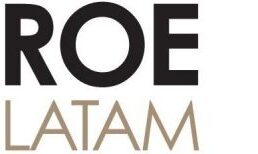
What Exactly is Nearshoring? And Why You Should Act Now!
The concept of nearshoring involves the close relocation of business operations, signifying the trend of moving business activities to a neighboring country. Nearshore outsourcing comes into play as a reaction to offshoring, a practice that seeks suppliers in distant locations to reduce costs.
The primary objective of nearshoring is to bring together outsourced production centers, reducing the inefficiencies caused by long distances and time zone differences between continents, which often disrupt supply chain processes.
Onshoring, a term akin to nearshoring, involves subcontracting the manufacturing of products or parts to a more economical facility within the same country
NEARSHORING IN THE CONTEXT OF MEXICO AND THE UNITED STATES
Per findings from the Nearshoring to the Americas study by the Center of Strategic and Internatnional Studies (that you can check by clicking here), the positive impact of the USMCA free trade agreement between the United States, Mexico, and Canada is evident in the strengthening of their relationship. Notably, in 2021, following the trade war between the US and China, Mexico’s share in US imports increased from 13.5% to 13.9%, while China’s decreased from 20.6% to 17.2%.
The study indicates that the ongoing trade tensions with China are driving both relocations to the US and nearshoring to Mexico. The expectation is that if other Latin American countries offer similar advantages for investment and trade with the US, nearshoring opportunities could multiply in the coming years.
OPPORTUNITIES ARISING FROM NEARSHORE OUTSOURCING FOR MEXICO
As per predictions, major American importers are likely to diversify their manufacturing suppliers, reducing dependence on China, especially after the problems due to the Covid-19 pandemic. This opens up significant opportunities for Mexico to play a more substantial role in logistics development and service generation, particularly for the North American market.
7 FACTORS THAT FAVOR MEXICO AS A NEARSHORING PARTNER
Consider these seven factors that encourage nearshoring collaboration between Mexico and the United States:
- The strained relationship between China and the United States.
- The USMCA agreement fostering free trade among Mexico, the United States, and Canada.
- Proximity of the two countries.
- Lower labor costs in Mexico.
- Reliable supply chains in Mexico.
- Strong industry performance, particularly in the automotive sector.
- Fewer time zone differences.
BENEFITS OF EMBRACING NEARSHORING
EFFICIENT LOGISTICS AND FASTER SHIPPING
Due to geographical proximity, transporting goods from the United States to Mexico is significantly faster than shipping to China. The advantages of nearshoring include a shorter supply chain, leading to lower costs and fewer export logistics challenges.
STREAMLINED SHIPPING PROCESS
As mentioned earlier, increased distance often leads to more logistical issues. With the current global shipping crisis, international shipments have become more complex, requiring dealing with uncertainty and global risks.
DIVERSIFIED EXPORTATION CHANNELS
Closer proximity facilitates multiple transportation options for goods, offering flexibility in using ground, air, or sea transportation.
MINIMIZED TIME ZONE DIFFERENCES
Effective communication is crucial in business relationships, and nearshoring allows for real-time communication due to shared time zones, making it easier to handle emergencies and follow-ups.
LABOR COST ADVANTAGES
While Mexico may not offer labor as cheap as China, it remains an attractive option for US companies looking to diversify manufacturing. Skilled workers in industrial parks near the US border contribute to this appeal.
Determining whether nearshoring or offshoring is preferable depends on specific needs, capabilities, and the preferences of buyers. While distance may make offshoring more cost-effective, Mexico has a compelling opportunity to benefit from nearshoring, considering the advantages it brings to the United States.
Offshoring may be more cost-effective, but the challenges of distance, communication, and coordination can hinder long-term success. Nearshoring not only capitalizes on cost savings but also facilitates communication and collaboration.
Outsourcing, a prevalent practice in recent years, involves a corporation contracting a third party to execute specific business tasks. This often includes functions like customer support, bookkeeping, marketing, or software development, leveraging specialized suppliers for these tasks.
THE FUTURE OF NEARSHORING
In recent years, the concept of nearshoring has gained considerable traction in response to the evolving dynamics of global trade. The advantages of nearshoring, such as proximity, reduced logistical challenges, and streamlined communication, are likely to shape the international business landscape significantly. Technological advancements, including automation, artificial intelligence, and data analytics, further enhance the appeal of nearshoring by increasing efficiency and sustainability in production processes.
Global uncertainties, ranging from geopolitical tensions to pandemics, have underscored the importance of resilient and agile supply chains. Nearshoring emerges as a strategic solution to minimize risks associated with disruptions, allowing businesses to respond promptly to unforeseen challenges. As companies reevaluate their risk management strategies, nearshoring stands out as a resilient alternative to navigate uncertain times.
Amid the growing emphasis on sustainable business practices, nearshoring aligns with environmental considerations. Reduced transportation distances contribute to lower carbon footprints, meeting the increasing demand for eco-friendly supply chain solutions. As companies integrate environmental sustainability into their operations, nearshoring becomes a viable option to achieve these goals.
The ongoing evolution of trade agreements continues to shape the dynamics of international business relationships. Nearshoring, particularly in regions with favorable trade agreements, stands to benefit from the changing geopolitical landscape. Companies strategically positioning themselves in areas with robust trade agreements can leverage nearshoring to access broader markets and navigate regulatory frameworks more seamlessly.
Mexican government and businesses are increasingly recognizing the importance of investing in education and skill development to meet the evolving demands of nearshoring. Initiatives to enhance the skill sets of the workforce in nearshoring destinations contribute to creating a more competitive and capable labor pool. This focus on human capital development reinforces the sustainability and long-term viability of nearshoring partnerships.
While large corporations have embraced nearshoring, the trend is extending to small and medium-sized enterprises (SMEs). Nearshoring allows SMEs to access cost-effective manufacturing solutions without the complexities associated with global supply chains. This democratization of nearshoring supports the growth of diverse businesses, fostering economic development on a broader scale.
HOW ROE LATAM LAW FIRM CAN HELP
At ROE Latam, we understand the complexities of moving operations to Mexico and capitalizing on the benefits of nearshoring. Our law firm specializes in providing comprehensive legal support to businesses aiming to establish or expand their presence in Mexico. From navigating regulatory frameworks to facilitating smooth transitions, our team of legal experts is dedicated to ensuring a seamless nearshoring experience for our clients. Let us help you leverage the advantages of nearshoring and contribute to the success of your business in the vibrant Mexican market, send us an email at online@roelatam.com
If you want to know more about the Mexican business enviroment, please check these posts:
- First Steps to Start a Business In Mexico+
- Employee Profit Share in Mexico
- How to Incorporate an NGO in Mexico
- Game-Changing News: Tesla Chooses Mexico for its Epic Gigafactory
- Unlocking Opportunities: Mexico’s Shift to a 40-Hour Workweek
- Fast Business Establishment in Mexico: A Legal Perspective on Shelf Companies
